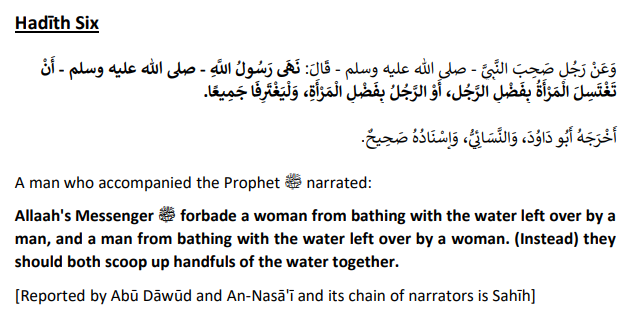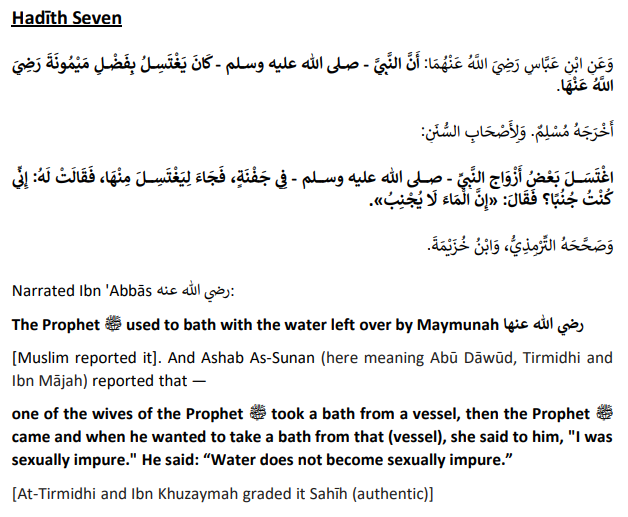Skip to content
We covered:
- An overview of Wudhu (Ablution)
We covered:
- Wudhu is a condition of the prayer
- Using the siwaak is a stressed sunnah
- A believer should be upon cleanliness when entering the mosque
We covered:
- Difference between the urine of baby boys and girls
- How to purify garments from menstrual blood
- Praying in clothes with an impurity on them
- Humbleness of the companions
We covered:
- The saliva of camels – pure or not?
- Seminal fluid – pure or not?
- Animals that are permissible to eat – pure or not?
We Covered:
- What are the two types of impurity?
- Making vinegar from alcohol – allowed or not?
- Impurity of domesticated donkeys
We covered:
- Using the utensils and clothes of the disbelievers – allowed or not?
- Repairing broken utensils with silver – allowed or not?
- Importance of returning back to the people of knowledge
We covered:
- What to do if a fly falls into your drink
- Killing insects – permissible or not?
- Ruling on sections cut off animals that are alive
We covered:
- Two types of dead animals are permissible
- Two types of blood are permissible
- Four rules concerning slaughtering animals
- Meat of the people of the book
We covered:
- Benefits from the Hadeeth of the man that urinated in the Masjid
- The sanctity of the Masaajid
- How to purify the ground from impurities
- Wisdom when giving da’wah to the masses
We covered:
- The vast knowledge of Ibn Abbaas
- Different types of prohibition
- Using left over water for wudhoo and ghusl
- Some rulings around the principles of Fiqh
- Benefits from the Ahadeeth below:

